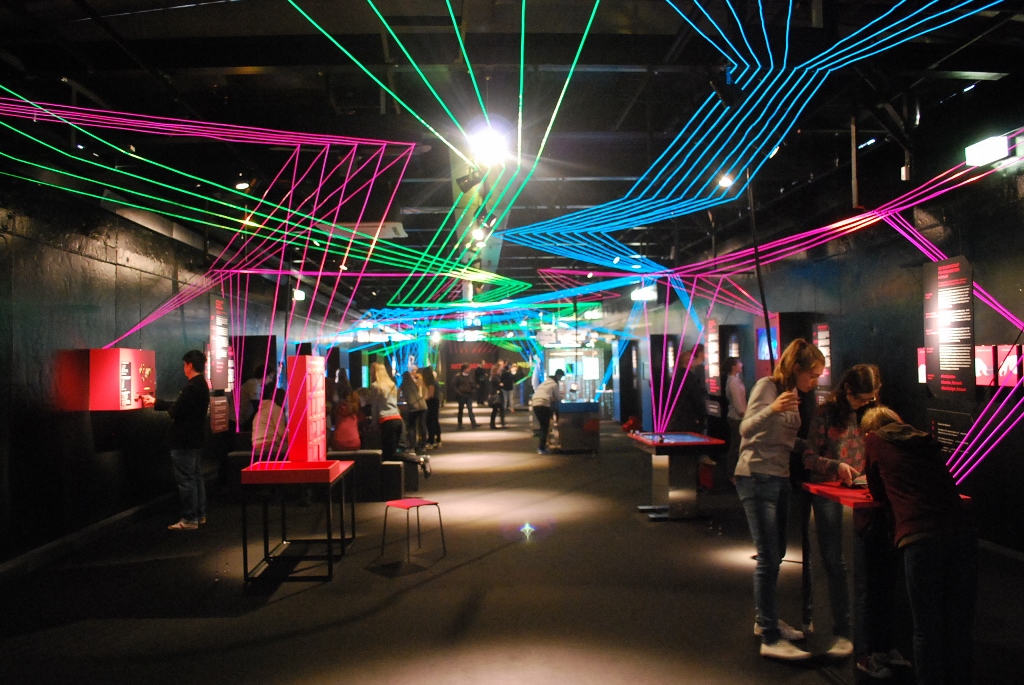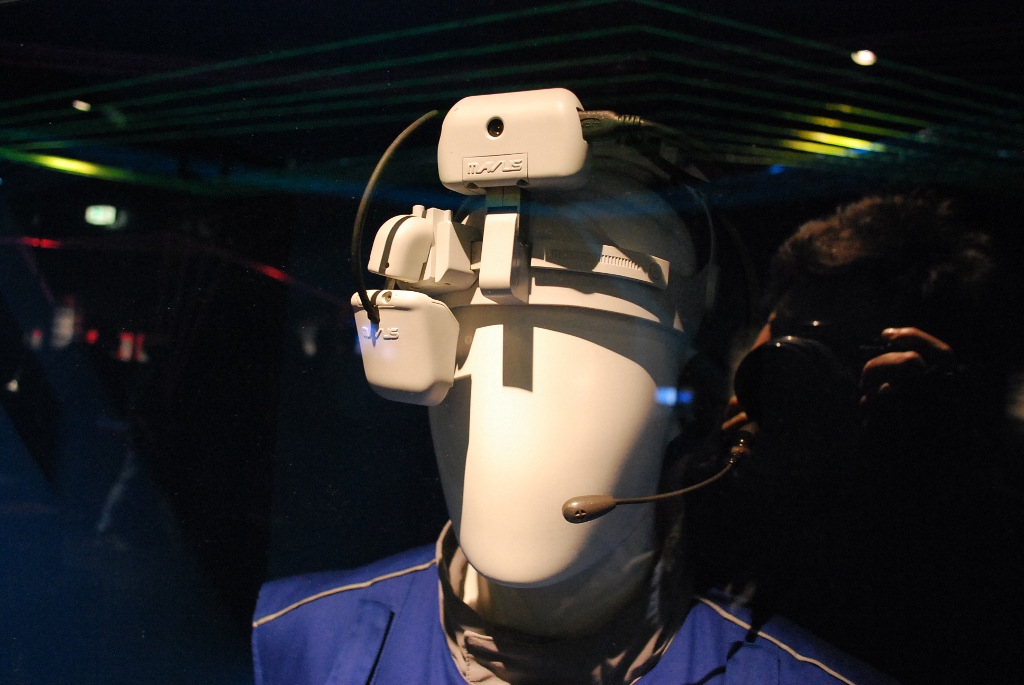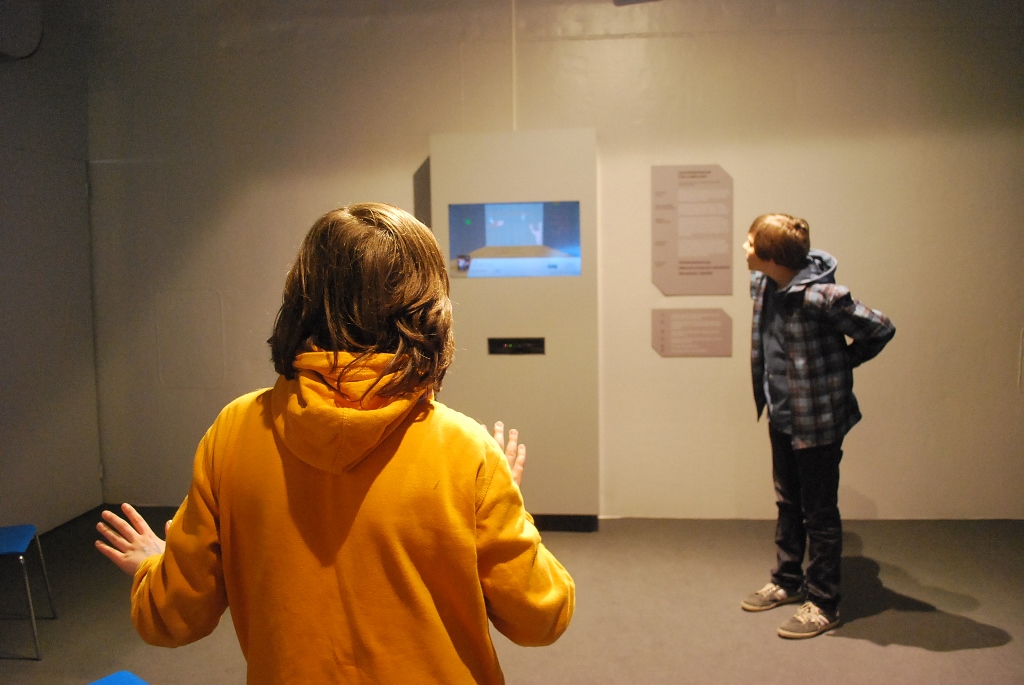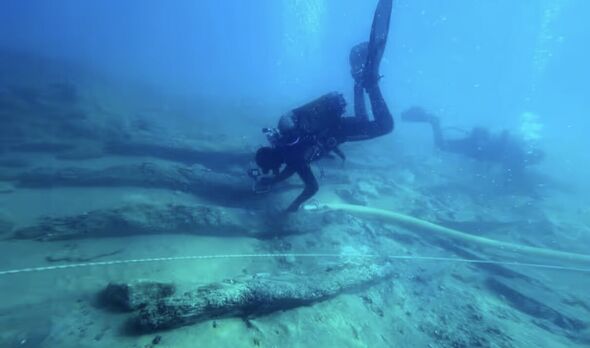
State of global economy may be the result of changing demographics
June 8, 2014ECB’s Actions Are No Panacea for Europe’s Economy
June 8, 2014Image: Ilya Hendel / Science in Dialogue
When you hop on the MS Wissenschaft, you’re struck by how normal it looks from the outside; painted white and blue, it could be any other barge. But head below deck and you’ll find something far cooler: A full-on science center, one that’s currently floating its way around Europe.
The MS Wissenschaft (MS Science in English) is a think tank loaded with scientific exhibits, including a belly filled with technology, laser beams, bots, and gaming. The ship’s tour kicked off last month in Berlin, and will continue sailing through September, stopping off at roughly 40 cities across Germany and Austria.
While the sailors change monthly, the captains of the ship, Albrecht and Karin Scheubner, will live on the boat for the entire time the show is active. The couple remains at the center of the ship’s activities, as they have since the project first started in 2003.

Image: Nadja Sayej
So how did they get to putting science on a boat in the first place? Well, project manager Beate Langholf says it all began in 2002 when one professor, Gerold Wefer, planned his own science barge, called Geoschiff. The idea was to create a low-maintenance traveling show without all the installation nightmares. “Just put down the rail and people can come and visit,” said Langholf. The MS Wissenschaft utilizes the same concept of bringing the science to the people via waterways.
Presented as part of the German Federal Ministry of Education and Research’s Science in Dialogue initiative, the focus for the year’s show is “Digital Go,” a take on digital technology, outlining its risks and opportunities, as well as its industrial past and future. The ship features a sci-fi tour comparing new tech to Star Trek, a new project about public gaming, and a brand-new crowdfunding platform for science projects.
It feels like any other science museum once you’re onboard. (There was no rocking of the boat, as the waters were still in Berlin.) First, you’re greeted by the info robot Oskar, who offers a quick sound bite upon entering the show—in German, naturally.

Image: Nadja Sayej
Once you’re inside, there’s a dark timeline with irregularly-hung florescent lights showing the steps of media from past to present. The main space is lit with multi-colored lights that zoom up and down like lasers. Behind glass, there are data glasses used for safety in the wind engine industry, while the main space has tables offering a history of data storage and screens with digital loops controlled by Kinect.
The show, says Langholf, is developed by research institutes. They want to show the latest topics scientists and researchers are working on, which this year includes a focus on dependency and addiction.
“For example, if one can be addicted to using the internet or smartphone like to drugs or alcohol,” she said. “Some studies show physical dependency like shivering. The researchers would like to know if that´s a genuine dependency and to define the indication correctly, they invented the app Menthal, which allows people to control their smartphone use.”

Image: Nadja Sayej
The center has been a rousing success, and has regulars waiting by the dock every year. While the MS Wissenschaft is on tour, people travel from nearby towns to visit the show, staying for hours.
“Others write tiny little love letters to our guides and the crew,” said Langholf.
It seems to be the love boat in some ways, too. “Some of the workers fell in love while working together in the exhibition,” she said, “so there have been some couples in recent years, not only for the time of the tour, but beyond—there was one baby born last winter.”
The MS Wissenschaft is on tour until the end of September, where it wraps up in Forchheim, Germany. Like Peter Pan, catch it while you can.




